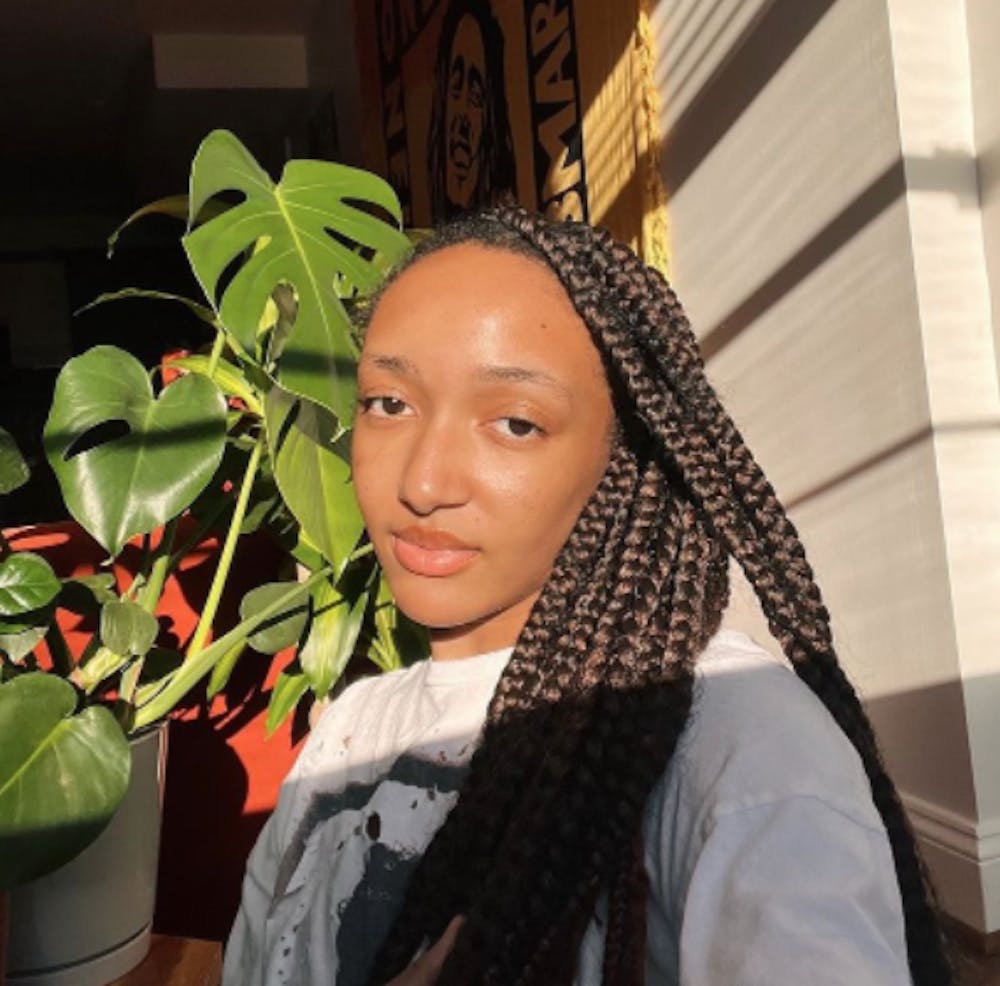Makenna Lindsay, a junior studying sociology and Spanish, has long dreamed of creating a safe space to highlight the importance of wellness and pleasure for Black and brown women. Lindsay thus conceptualized What We Water, a platform that she hoped would center creativity as a means of advocacy for women of color’s reproductive justice, self-care and wellness.
With the help of fellow AU student and BlackPrint writer Sofia Dean, Lindsay and Dean both launched What We Water in January 2022, a living digital project that spreads awareness about the reproductive justice and wellness issues facing Black and brown women today.
The BlackPrint sat down with Lindsay to discuss What We Water’s journey, how it aligns with her personal goals and the importance of self-care for Black and brown women. Check out their website and Instagram, @whatwewater for more resources and regular updates.
The BlackPrint: Describe to us what What We Water is, and your platform’s mission.
Makenna Lindsay: What We Water is is a living, digital project that's been in development for about two years. Our goal is to advocate for the bodily autonomy of Black and brown women, and support the sexual and mental health, and wellness of Black and brown women.
BP: What inspired you to create What We Water?
ML: There are so many conversations that aren't spoken about when it comes to the health of Black and brown women, especially health that has been stigmatized in any way. Black and brown women have a lot of generational trauma when it comes to sexual health and to bodily autonomy, and that's something we can read about, but also I have experienced that after having some negative experiences with my own sexual health. So, that really pushed me to explore what this has to do with my identity as a Black woman and how I can navigate that in a world where resources or for us are just slim to none.
BP: Why do you think this platform is specifically important for Black and brown women? What do you hope users take away from your organization?
ML: First, it's very important, because Black and brown women are often asked to push their needs aside to make way for the community that's both historical and contemporary, within Black and brown cultures. So I really want when people are looking at the platform to be able to see themselves in conversations about pleasure and intimacy, but also be able to access resources for marginalized women's reproductive justice and sex work, and just all of these things that are not spoken about.
BP: Tell us what wellness means to you and what you think the best ways to practice wellness are.
ML: Wellness to me is prioritizing self in order to uplift the community. Without prioritizing yourself, reflecting on your own actions and making sure that you're taking care of things like your body or mind means that you're not going to be able to serve the community in any way. I also think about sexual wellness, which can be sexual health but also forms of pleasure and encouraging Black and brown women to explore their pleasure and sensuality. It could also mean mental health resources. Black and brown women are statistically more likely to experience anxiety, depression and PTSD so definitely we need to be able to talk about mental health as well.
BP: How does WhatWeWater fit into your personal goals and self-care journey?
ML: It’s really important for me to prioritize my mental health, which comes first before anything. I know for a lot of Black and brown women however, that is not the case but I want people to know that that CAN be us. We can prioritize ourselves, our mental health and we can get therapy, and you know we can devote time to not doing work or relaxing. I think that's something that I really want to come across. Because we don't feel comfortable taking a break and I don't like that. It is not good for the collective or good for progress. For my own journey, I find that putting things together like the collections that we do have on different topics helps me understand my positionality of the Black woman in a larger context.
BP: What vision do you have for What We Water’s future? How do you see the organization growing?
ML: I consider it a living project and it is something that I want to grow with me. We plan on venturing out into the community, and seeing what kind of networking we can do to share our purpose that way. Venturing out also is a way to initiate more discussions with other organizations, as well to foster a community setting. We'd also like to maybe get into more multimedia projects, like a podcast, more curated music, or a virtual gallery walk. These are ways that we can creatively celebrate our lives in addition to talking about really difficult subjects.



